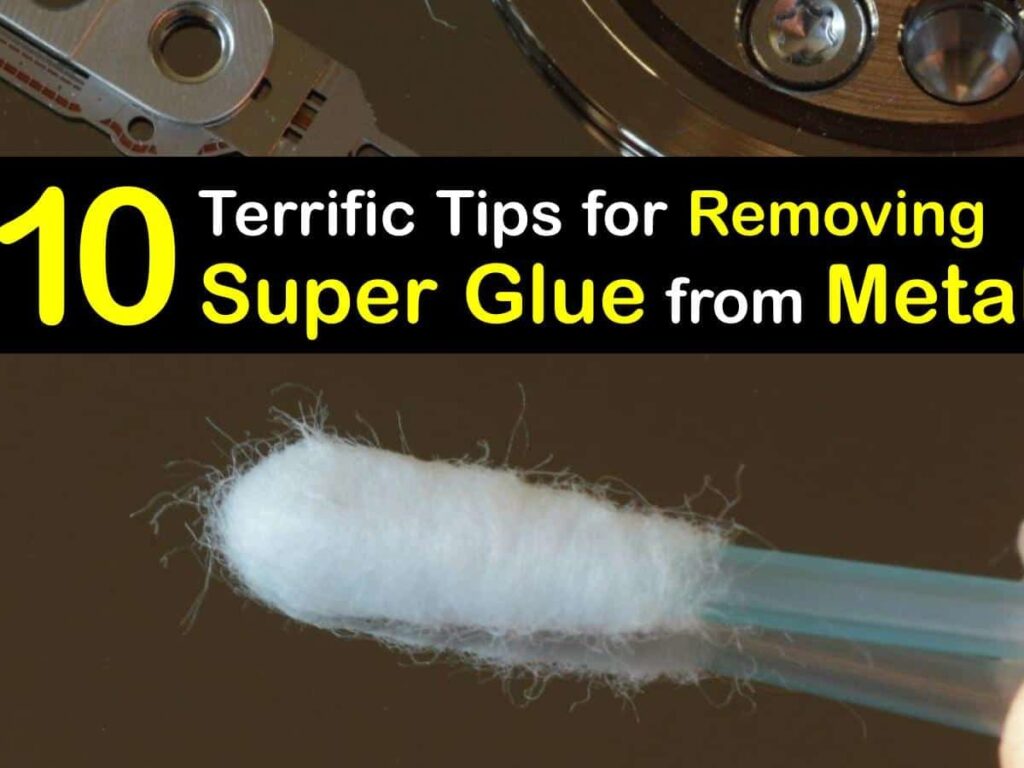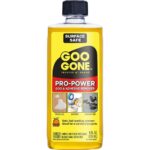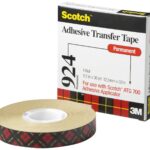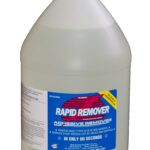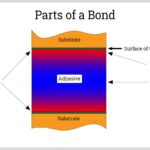Removing glue from metal can be a challenge, but there are a few methods that can help dissolve the glue and make removal easier. One way to dissolve glue is to use a solvent such as acetone or nail polish remover. Simply apply the solvent to a cotton ball or cloth and rub it over the glued area. This should help to loosen the glue so that it can be peeled or scraped off. If the solvent method does not work, you can try heating the glue with a hair dryer or heat gun.
This will cause the glue to soften and become easier to remove. Be careful not to overheat the metal, as this could damage it. Start with the hair dryer on the low setting and gradually increase the heat until the glue starts to soften. You can then scrape the glue off with a putty knife or other sharp object. If you’re still having trouble removing the glue, you can try using a commercial glue remover. These products are designed to dissolve and remove glue, so they may be more effective than household solvents. Follow the directions on the product to see how to apply it and how long you should let it sit before scrubbing or scraping the glue off.
How to remove dried glue from metal
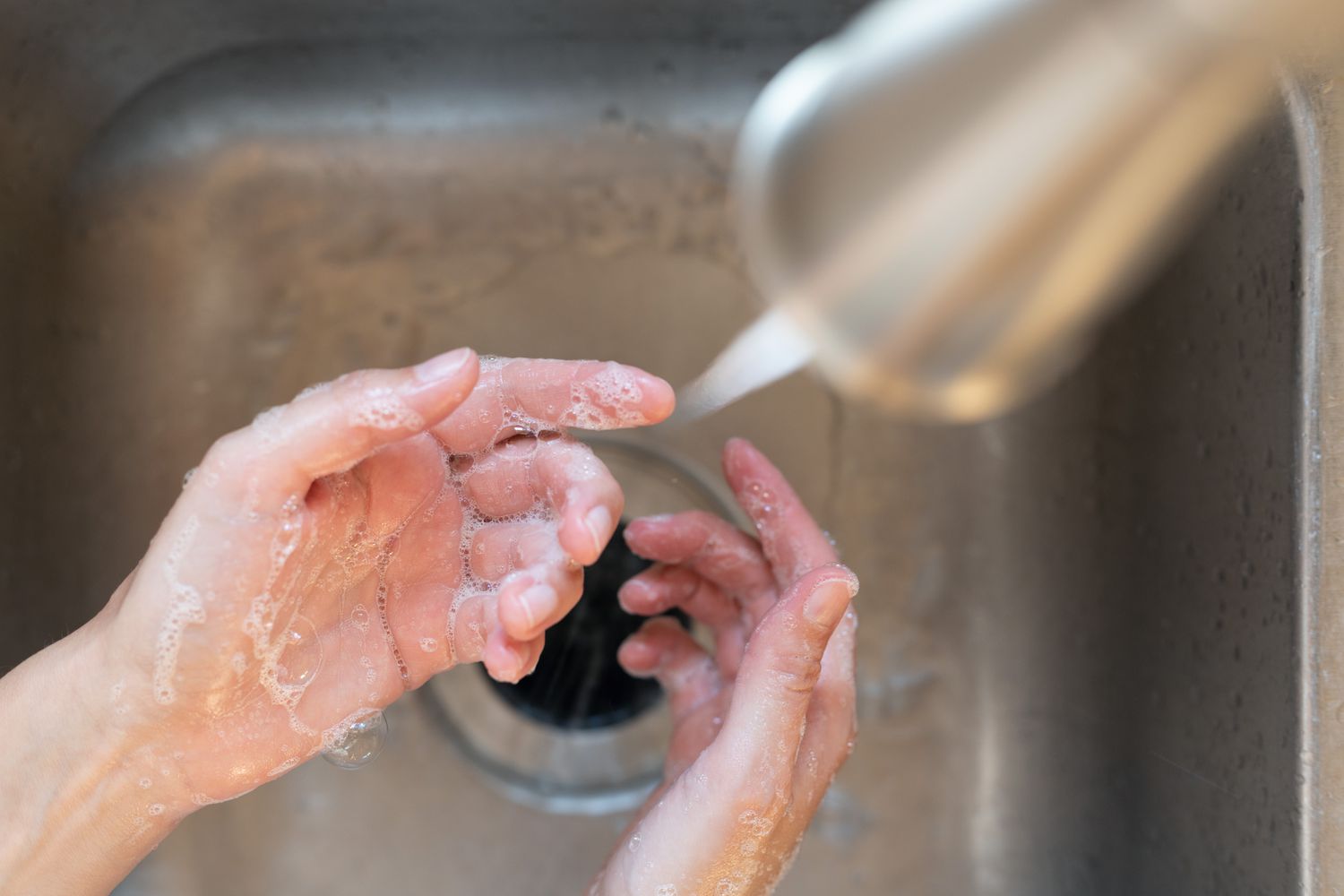
To remove dried glue from metal, you will need to dissolve the glue first. You can do this by using a solvent such as acetone or nail polish remover. Apply the solvent to a cotton ball or cloth and rub it over the glued area. The solvent will help to break down the glue so that you can wipe it away. You may need to apply the solvent several times to get all of the glue off.
How do you get hard glue off of metal?
Removing glue from metal can be tricky, but there are a few methods that can help dissolve and remove the glue.
- One way to remove glue is to soak the metal in a solution of warm water and dish soap. This can help loosen the glue and make it easier to remove.
- Another method is to use a vinegar and water solution. Vinegar is a mild acid that can help dissolve the glue. Simply mix equal parts vinegar and water and apply it to the glued area.
- If these methods don’t work, you can try using a stronger solvent such as acetone or nail polish remover. Simply apply the solvent to a cloth and rub it over the glued area.
Does WD-40 remove super glue?
When it comes to removing super glue from metal, WD-40 can be your best friend. This common household product is great for dissolving glue and making it easy to remove. Simply spray WD-40 onto the area where the glue is, and let it sit for a few minutes. Then, use a rag or brush to scrub the glue away. You may need to repeat this process a few times to completely remove the glue, but WD-40 will make the job a lot easier.
Can vinegar remove super glue?
Vinegar is a weak acid that can be used to dissolve super glue. To remove super glue from metal, soak a cotton ball in vinegar and apply it to the glued area. Leave the vinegar on the super glue for a few minutes to dissolve the adhesive. Rinse the area with water and dry it off.
Will vinegar remove glue from metal?
Yes, vinegar can remove glue from metal. To do this, simply soak a cotton ball in vinegar and rub it over the glued area. The vinegar will dissolve the glue, making it easy to remove.
Does WD-40 remove adhesive?
Yes, WD-40 can remove adhesive from metal surfaces. To dissolve glue on metal, simply spray WD-40 onto the affected area and let it sit for a few minutes. Then, use a cloth or brush to scrub the glue away.
Does WD-40 Remove metal glue?
WD-40 can be used to remove metal glue from surfaces. To do this, simply apply WD-40 to the affected area and let it sit for a few minutes. Then, use a cloth or brush to scrub the area and remove the glue.
How do you remove hardened glue?
If you need to remove hardened glue from metal, there are a few things you can do. One option is to heat the metal object up and then use a razor blade to scrape the glue off. Another option is to use a chemical solvent, like acetone, to dissolve the glue. Whichever method you choose, be sure to use caution and take care not to damage the metal surface.
Does WD-40 remove glue?
WD-40 can remove glue from metal surfaces. To do this, simply spray WD-40 onto the glued area and let it sit for a few minutes. Then, use a cloth or brush to wipe away the glue. If the glue is stubborn, you may need to scrub a bit harder.
Can you soften hardened glue?
If you’re trying to dissolve glue on metal, you might have some success if you can soften the glue first. This can be done by heating the glue with a hair dryer or by soaking it in warm water. Once the glue is softened, you should be able to scrap it off with a putty knife or another sharp object.
How do you remove tacky glue from metal?
If you need to dissolve glue on metal, there are a few things you can try. You can use acetone or nail polish remover, which will usually work to dissolve the glue. If not, you can try using a heat gun to melt the glue. You can also try using a soldering iron to burn off the glue. If all else fails, you can try using a strong acid, like hydrochloric acid, to eat through the glue.
Does wd40 remove super glue?
If you’re trying to remove super glue from metal, wd40 may do the trick. Spray a generous amount of wd40 on the glue, and let it sit for a few minutes. Then, use a rag to wipe away the glue. You may need to repeat this process a few times to get all the glue off.
How do you dissolve glue?
It’s actually really easy to dissolve glue on metal. All you need is a little bit of heat and some acetone.
- First, heat up the metal surface with a heat gun or a blow torch.
- Then, apply some acetone to a rag and scrub at the glue until it starts to dissolve.
- Once the glue is dissolved, you can wipe it away with a clean rag.
How to remove rubber coating from metal?
If you need to remove rubber coating from metal, there are a few things you can do. One option is to use a chemical solvent to dissolve the glue. This can be effective, but it can also be dangerous if you’re not careful. Another option is to use heat to melt the glue. This can be done with a blow torch or a heat gun.
Be careful not to overheat the metal, as this can damage it. If you’re not careful, you can also end up inhaling toxic fumes. The best way to remove rubber coating from metal is to use a mechanical process like sanding or grinding. This is the safest and most effective method, but it will take some time and effort.
How do you remove epoxy from metal?
If you need to remove epoxy from metal, there are a few methods you can try.
- One way to remove epoxy from metal is to heat the surface with a blow torch or heat gun. This will cause the epoxy to soften and become less adhesive. You can then use a putty knife or other sharp tool to scrape the epoxy off.
- Another way to remove epoxy from metal is to use a strong solvent. Acetone or nail polish remover can sometimes dissolve epoxy. Apply the solvent to a cloth and rub it over the surface of the epoxy. The epoxy should start to dissolve and come off.
- If neither of these methods works, you can try sanding the epoxy off. Use a coarse grit sandpaper and sand over the surface of the epoxy until it is removed. This method will take some time and patience, but it will eventually work. Whatever method you try, be sure to work slowly and carefully to avoid damaging the metal surface.
How to remove a metal coating from an object?
To remove a metal coating from an object, first dissolve the glue on the metal surface. This can be done by using a solvent such as acetone. Apply the solvent to the area and let it sit for a few minutes. Then, use a cloth or brush to scrub the area and remove the dissolved glue. If necessary, repeat this process until all of the metal coating is removed.
